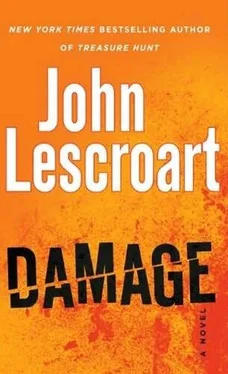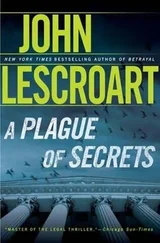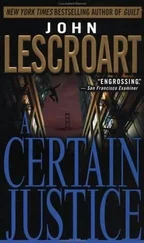Inside the building, he lost his signal altogether.
He ran down the internal hallway that led him to Southern Station, the police precinct located on the ground floor within the Hall of Justice where a sergeant named Mildred Bornhorst was monitoring the GPS results. Here Glitsky learned that Ro’s car was still parked down in Sunnyvale, where it had been for more than an hour. Glitsky got the relevant information, such as it was, to give to the emergency operator, but again he couldn’t get past the busy signal.
It was not until he was in his office again-the clogged river of humanity in the lobby, the long ride up in the world’s slowest elevator-that he could punch up the emergency numbers again on a landline. This time through a disturbance in the Force he got through and in another two minutes was talking to a Sergeant Bransen at the Sunnyvale Police Department.
“The suspect is Ro Curtlee,” Glitsky was explaining. He spelled out the name. “He’s out on bail on a rape/murder charge…”
“There’s no bail on a rape/murder charge,” the sergeant said.
“Don’t ask,” Glitsky snapped. “In any event, he’s armed and dangerous. He’s due to get indicted on multiple murder within the next couple of hours, so if you can get in his face any way you can, we’d appreciate it more than I can tell you.”
“Get in his face? What’s that mean? Is he indicted or isn’t he?”
“He should be by the time you find him.”
“What if he isn’t?”
“Then you can at least slow him down.”
Another hesitation, then Glitsky heard, “And what’s he doing again?”
“I think he’s threatening or harming one of the witnesses who’s going to testify against him.”
“Who’s that?”
“Gloria Gonzalvez, although that might not be her name anymore. She might have gotten married or just changed it.”
“All right. So Gloria somebody.”
“Right.”
“And where does the GPS put him?”
Glitsky had written down this information, and now he consulted his notepad and said, “It looks like the nine hundred block of Dennis Drive, between Burnham and Agnes.”
“Okay. What’s the address they’re in front of?”
“I don’t know exactly.”
“License number of the car?”
Glitsky gave it to him.
“Okay. And where the woman lives? Her address?”
“I don’t know that, either.”
A slight hesitation on the other end, perhaps a sigh of impatience.
Glitsky’s blood pounded from his temples to the center of his forehead. “Look, the guy is serious as a heart attack and he’s down there now. He’s probably stalking this Gloria woman. You need to just send some units down and check it out. Be a presence. You see a guy who looks like he doesn’t belong, get his ID. If it’s Curtlee, hold him or if the indictment’s come down, take him in.”
“You suggest we go door to door?”
“Yeah. Absolutely. If you have to.”
“Can I get the spelling of your name again?”
“Sure.” Glitsky blew out heavily to release some of his own frustration, then spelled it out for him. “I’m head of San Francisco homicide.”
“All right. I hear you. I’ll send a unit over.”
“More than one would be better.”
Another hesitation. “I’ll see what I can do.”

On the way down to Sunnyvale, and although it was illegal even for a cop like Glitsky to use his cell phone while he was driving, he checked in again with Sergeant Bransen. He had sent a couple of squad cars over to Dennis Drive, but there had been nothing suspicious going on there. His officers had not seen fit to go door to door.
Glitsky placed another call back to Southern Station at the Hall and talked to SFPD’s own Sergeant Bornhorst again, manning the GPS feed since the morning. From Bornhorst he learned that Ro’s car had moved on from its Sunnyvale location and was now on the 280 Freeway going north, back up toward the city. There were no units, Highway Patrol or local, in any kind of pursuit, but Bornhorst assured Glitsky that as soon as word of the indictment came down, if it did, police could pull the car over and pick up Ro-it would take some coordination with mobile units, but they could get it done.
Glitsky was sure she was right. But because of his own history with Ro, as well as the new chief of police’s need to avoid the appearance of anything personal sullying the arrest, Lapeer had rather pointedly taken Glitsky out of the decision-making process on her strategy to serve Ro with the indictment and get him back into custody. The chief was assembling a special team for the takedown, and from what Glitsky had heard, it was going to be near or at Ro’s house, where he could be expected-eventually-to turn up.
Assuming, of course, that the grand jury could make up its mind on indictment for the first two murders before the end of the day.
By this time, Glitsky was two-thirds of the way down to Sunnyvale. He could still be useful. He had his own reasons for finding Gloria Gonzalvez.
During his drive down the peninsula, the clouds had bunched up and condensed and now a stiff cold rain pelted his windshield as he turned into Dennis Drive. Cruising the length of the street, fortunately only one block long, there was still just barely enough light to assure himself that, sure enough, neither of Ro’s two probable vehicles were parked at the curb.
Finding a space more or less at random, he parallel parked into it and sat for a moment hoping for a break in the rain, since he realized to his chagrin that he only had his regular Mountain Hardwear jacket-he’d loaned his raincoat to Amanda Jenkins for their walk up in the city and she no doubt still had it. Finally giving up as the rain kept falling, he got out and jogged from his car to the nearest house that showed a light, got under the front door overhang, and rang the doorbell.
After a moment, the inside door behind the screen opened a crack and a female voice said, “Yes?”
Glitsky, a large black man with a fierce countenance and a long scar up and down across his mouth, almost never encountered less than a severely reserved welcome from his unexpected appearance at someone’s door, if not one of actual fear. And this woman was proving to be about typical. So he had his badge out and introduced himself, then continued: “I’m looking for a woman whose first name is Gloria who lives on this street. Her last name used to be and maybe still is Gonzalvez. I believe she may be in danger and I’d like to talk to her.”
The woman didn’t open the door any farther, simply said, “Sorry,” and closed it.
Glitsky didn’t waste any time hoping to alter her worldview about how to act if policemen came to her door requesting information. Instead, reasoning that she would probably at least know the name of her next-door neighbors, he skipped the next house, and the one after that, jogging through the rain, and a few houses down another house had lights showing and he turned in and tried again. This time the resident was a middle-aged African American man and he opened his door and actually gave Glitsky a smile. “Wet enough for you out there?” he said.
“Just about.” Glitsky held up his badge and gave him his pitch.
The man didn’t have to think about it. “That’d be Gloria Serrano.” He actually came out and stood next to Glitsky on the small porch, pointing to be helpful. “She’s four houses down on the other side, the blue shutters. Is she all right?”
“I hope so,” Glitsky said. “Thank you.”
“You need any help?”
“No. You’ve been one. Thanks.”
Half a minute later, Glitsky rang her doorbell. It was apparent that several people were inside. There was a bit of commotion-children’s exclamations and then an authoritative man’s voice. When the door opened, Glitsky was holding his badge out again and looking at an obviously angry, worried Hispanic male of about thirty-five. He was holding a fireplace poker in his right hand and looked ready to use it at the slightest provocation.
Читать дальше













